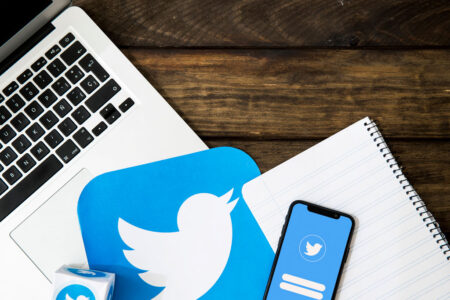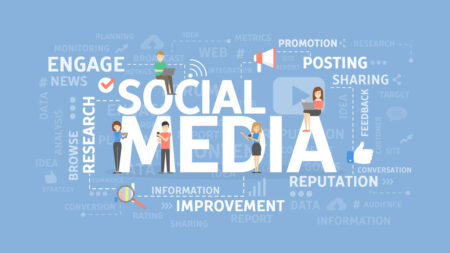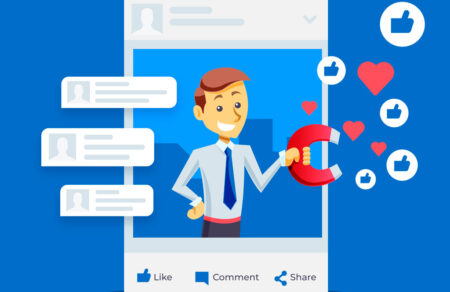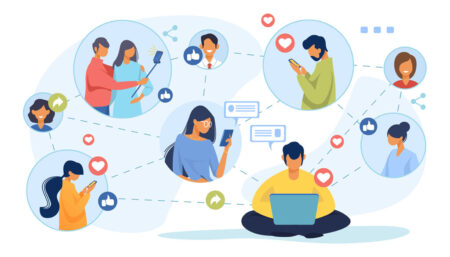More and more organizations are hosting online events. Social media can be a valuable tool in getting people to attend.
It’s safe to guess that at least one event you planned on attending has been canceled due to the COVID-19 pandemic. From concerts to conferences, meetups to movie nights – the leisure industry has been one of the hardest-hit in 2020. However, another area is burgeoning in these times of crisis – the virtual events space.
Leading global events like the Salesforce World Tour, the NBA Kickoff, and even the Tomorrowland Music Festival have been exploring innovative ways of “keeping calm and carrying on” by harnessing the power of digital technology. However, unlike these events which carry considerable clout, a lot of smaller companies struggle with getting their online events seen and heard.
This is where social media comes in handy as a tool for promoting your virtual event – allowing you to maximize reach while minimizing cost. Knowing how to use social media to promote your online event is equally important, which is what we are going to discuss in this helpful guide. Some topics we will cover are:
1.Why use social media to promote a virtual event?
2.When should I promote my event on social media?
3.Which social media channels are most effective for virtual events marketing?
4.How to create a buzz around your virtual event on social media
Why use social media to promote your virtual event?
It’s no secret that social media has transformed from a sharing medium to a powerful marketing platform. Channels like Facebook, Instagram, and LinkedIn have been investing heavily in their marketing suites to allow brands, even smaller ones, to leverage their powerful reach.
The three main reasons why social media must be a part of your online event marketing strategy are:
Expanded reach
The beauty of moving your event online means that you are no longer constrained to targeting potential attendees in a specific geography. And social media can be one of the most powerful tools for broadening your audience, especially when you consider the number of people actively on these platforms. In the US alone, around 75% of Facebook users log in daily to engage with content, share information, and entertain themselves.
Budget-friendly advertising
For businesses on tight marketing budgets, social media can help you get more of a bang for your buck. Most social media platforms allow you to set your own budget and bidding criteria for advertisements. In fact, you can launch an ad on Facebook for as little as $10, and still reach a few thousand people.
Greater data insights
Possibly the biggest case for social (and indeed digital) marketing is that it allows you to measure results more accurately. Social media help you track how effective your ads are in promoting your event, as well as how many ticket sales were generated. It also gives you useful information on the people who engage with your ads, so you can target them with personalized communication in the future.
When should I promote my online event on social media?
As with normal events, your best bet is to start promoting your online event sooner rather than later, to maximize awareness. Some recommend beginning at least 6-8 weeks before the actual event, which allows you to gain momentum and reach a larger audience.
However, the mistake many marketers make is to promote events heavily only before the event takes place. An often-overlooked aspect of online event marketing is the during and the after, in which social media play a big role.
During your event
How many people attended the Superbowl in 2020? The answer is 65,000. But how many do you think tweeted about the Superbowl? Close to 2.3 million.
Social media can be handy for creating a buzz around your event while it’s going on. So what if people did not register in advance? You can still grab the attention of non-attendees with relevant content, build your brand, and grow your subscriber base for future events.
What’s more, the content that you generate during the event is likely to be much more engaging than pre-event buildup, since it contains the information that someone would actually attend your event to learn more about. Try live Tweeting your event or getting users in on the action with a relevant event hashtag.
After the event
The event ends, and that’s a wrap? Not quite. Don’t forget about the afterparty
It’s equally important to keep promoting your event on social media after it ends, to capture the momentum that you have gained over the past weeks. While the event is still fresh in your audience’s mind, try retargeting them with special offers or sales promotions for your products and services that may have been discussed during the event.
Additionally, you can use any recorded event content to continue to promote your brand. Upload your webinar onto YouTube or turn your speaker keynotes into short video clips to share on Facebook. The content you create will continue to give you social media mileage for the months to come.
Which social media should I use to promote my online event?
There’s no right or wrong answer as to which channel you can use to promote your online event – it really depends on your business and the type of event you’re hosting. The best way to decide is to think about the following questions:
- Who is your target audience? Is it more of a professional crowd? Perhaps LinkedIn is your best bet. Are they between the ages of 18-25 years? Try Instagram or Twitter. Identifying your audience will help you pick a channel depending on the average user demographics of the platform.
- What is the type of event? A professional networking event may be better suited to LinkedIn, whereas a live video may work better on Facebook. Think about the format of the event and decide accordingly.
- What type of content will you use to promote the event? Videos ads are most effective on Facebook or Instagram, whereas whitepapers work better on LinkedIn. It can also be more or less costly to promote certain types of content on different platforms, so try setting up some test campaigns to optimize your content strategy.
Your best bet is to cover all your bases and cross-promote across various channels. A combination of Facebook, Twitter, and LinkedIn should serve you well in most cases.
How to promote your online event on social media
Let’s take a look at some of the most widely used social media platforms out there and understand some of the key tools you can use to generate a buzz around your online event.
The behemoth of social media leaves no stone unturned when it comes to options for marketing your virtual event. From a sophisticated advertising platform with thousands of targeting options, to multiple content and ad formats, and tools that allow you to create a seamless registration process, here are some tips on promoting your online event through Facebook.
Events pages
35 million people view a public event on Facebook every single day. Creating a dedicated event page gives you a space to build excitement around your upcoming event. Some tips on creative effective Facebook event pages:
- Use an interesting and informative title and make use of the cover photo space to promote your event.
- Check the privacy settings to ensure that your privacy is set to public, so people can find your event.
- Invite people to events, don’t just rely on the audience to come and find you.
- Build the hype by posting content to the event page well in advance of the event.
- Don’t just create the page, promote it! Use Facebook ads to promote your events page.
- Cross-promote by tagging your co-sponsors and make sure they are publicizing your event as well.
Facebook ads
Arguably the most effective social advertising platform, you should definitely be using Facebook Ads to promote your event. While there are several options, some key tips to advertising success are:
- Use custom-based and lookalike audience targeting to promote your event. Previous event attendees, website visitors, customers or subscribers – all these audiences can be extremely valuable to retarget or create lookalike audiences.
- Experiment with different ad formats. Video works particularly well on Facebook, but you can also try boosted events posts, media carousels, or other formats to find which works best for your event.
- Try to make a seamless registration process by using the lead generation ad format on Facebook. Facebook now also allows you to sell tickets directly in the app; doing this can help reduce the friction in the registration process, increasing the number of attendees.
With over 100 million active monthly users, LinkedIn is an ideal choice of platform to promote your event. It is a myth that LinkedIn should only be used to promote “business” events – in fact, the average LinkedIn user has more disposable income than on any other platform, which makes them much likelier to spend on attending events that interest them. Some keys to success in promoting your event on LinkedIn are:
- Time your posts – While it is wiser to promote events during commuting hours or after work hours on other platforms, users are likelier to browse LinkedIn while at work.
- Create non-promotional content – thought leadership pieces, informative articles, and topical content tend to perform better on LinkedIn than pure “ads”. Link your engaging content to a clear call to action to drive user registrations for your event.
- Engage your speakers and leverage their networks by asking them to promote their participation in your upcoming event.
- Posting your event to relevant LinkedIn Groups is common advice, but be sure that your post is tailored to the audience of the group, rather than a one-size-fits-all advert.
- Direct messaging – Don’t be afraid to increase your outreach by using InMail. Target a handful of key influencers using this method and ask them to attend, instead of using it as a mass approach.
Twitter is more effective for events that have a broader audience base, since the targeting criteria offered by this channel are not as powerful as say, Facebook. However, Twitter is an extremely valuable platform for real-time event engagement. Some ways in which you can use Twitter to effectively promote your online event are:
- Get someone (or several people) to dedicatedly Live Tweet your event. The more social clout they have on Twitter, the better.
- Hashtags are incredibly important on Twitter. Find a simple, relevant and unique hashtag to promote your event and get everyone using it.
- Make sure you promote your hashtag not just on Twitter, but also on your other channels, as well as e-mails, physical marketing materials, and event branding as well.
- Respond to Tweets. It’s not enough to get information out there – make sure your users are engaged by retweeting and responding to their Tweets. This is likely to encourage them to engage more with your event – after all, who doesn’t like a little bit of social fame?
- Mix up the types of content – overly wordy Tweets won’t cut it. Use strong visual content – videos, infographics, links and more to deliver information to your users.
- Use Twitter Ads to promote your event, before and during the event.
While this is not an exhaustive list, now you know the basics of marketing your online event on social media.



